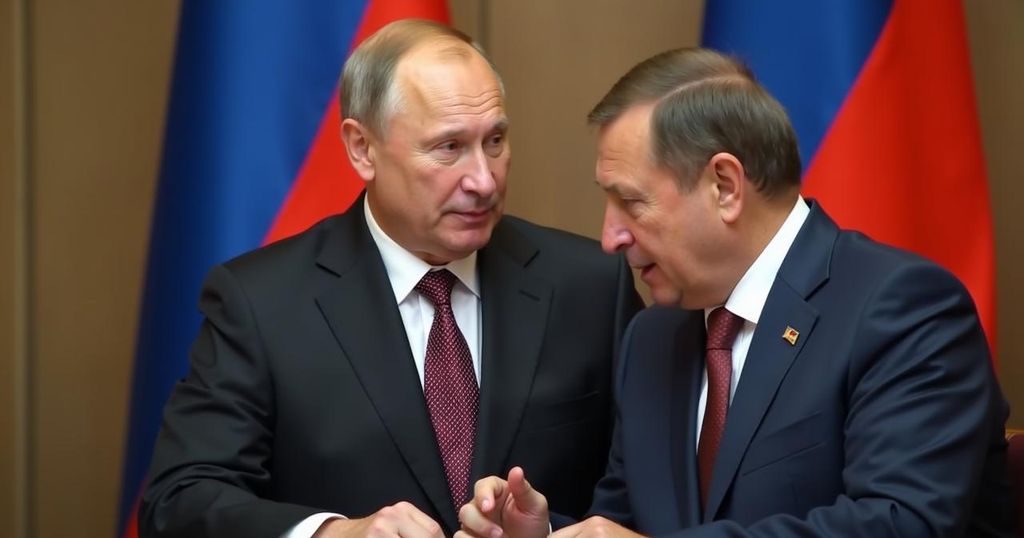Kremlin Rejects Allegations of Interference in Moldova’s Elections

The Kremlin categorically denied claims of meddling in Moldova’s upcoming presidential election and referendum concerning EU membership. Tensions rise as Moldova prepares to vote for its next president amid allegations of Russian interference and vote-buying schemes.
On Monday, the Kremlin firmly denied allegations made by Moldovan authorities regarding interference in the nation’s upcoming presidential election and referendum concerning European Union membership. Kremlin spokesman Dmitry Peskov emphasized that some citizens in Moldova desire good relations with Russia, yet lamented that their political representation is being suppressed. He noted, “These people are being denied the right to have their own political representation, the media is restricted from covering the electoral process and politicians are barred from expressing support for having relations [with Russia].” As Moldovans prepare to vote on Sunday for their next president, candidates include the pro-European President Maia Sandu, former prosecutor Alexandr Stoianoglo who has the backing of the pro-Russia Socialist Party, along with nine other candidates. On the same day, a referendum will pose the question of whether to amend the constitution to formally recognize EU membership as an aspiration for Moldova, akin to the constitutional changes made by Georgia in 2017. Previously, Moldovan authorities revealed they had discovered a substantial vote-buying scheme, allegedly involving $15 million sent from Russia by associates of Ilan Shor, a fugitive businessman residing in Russia. Shor, convicted of fraud in absentia, maintains that the payments were legitimate and accused Moldovan officials of transforming the nation into a “police state.” In light of the reported Russian interference, the European Union sanctioned five individuals and one entity in advance of the elections. Historically, Moldova has grappled with the juxtaposition of enhancing ties with the EU versus fostering relations with Moscow. President Sandu, who won against former president Igor Dodon in 2020, initially aimed to maintain a balance between Western affiliations and Russian ties. However, the relationship with Moscow has soured since Russia’s extensive invasion of Ukraine, during which Sandu has accused the Kremlin of tampering in Moldovan politics. Recently, the EU awarded Moldova candidate status and announced an unprecedented financial aid package of 1.8 billion euros (approximately $2 billion).
Moldova, a former Soviet republic, has long faced political divisions stemming from a desire to strengthen connections with the European Union while simultaneously wishing to preserve amicable ties with Russia. The country’s governing bodies often reflect this dichotomy, stirring significant debate among the populace regarding foreign policy direction. The upcoming presidential election and referendum represent a pivotal moment for Moldova, especially amid increasing scrutiny and allegations of foreign interference, particularly from Russia.
In summary, the Kremlin’s denial of interference in Moldova’s electoral processes comes amidst heightened tensions and serious allegations of vote manipulation linked to Russian entities. The elections are crucial as Moldova seeks to define its geopolitical alignment, navigating the influences of both the EU and Russia while the government has simultaneously faced accusations of curbing democratic representation.
Original Source: www.themoscowtimes.com








